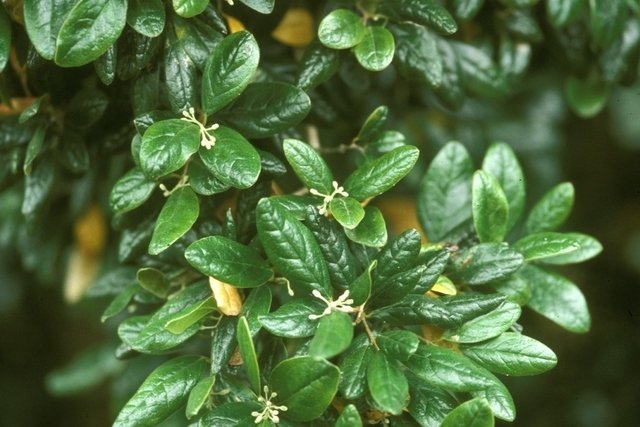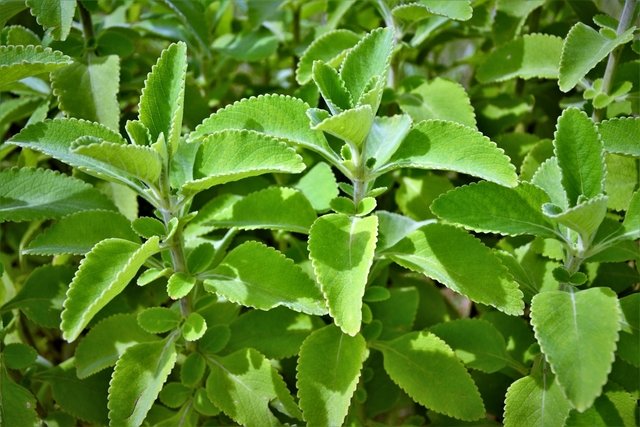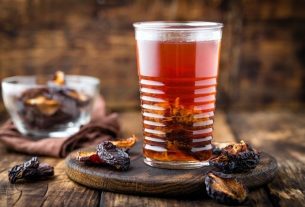Boldo is a plant widely used to help treat liver problems, due to its digestive and hepatic properties. However, it also has diuretic, anti-inflammatory and antioxidant properties, which can help in the treatment and prevention of gastritis, atherosclerosis and cancer.
The two most commonly used species of boldo are boldo from Chile, known as true boldo (Peumus boldus Molina), which can be found in health food stores in the form of dried leaves, tea bags or capsules; and Brazilian boldo, African boldo or false boldo (Plectranthus bearded) which is widely cultivated and found in gardens in Brazil.
Although it has several health benefits, boldo can also cause side effects, especially when consumed in excess or for more than 30 days, in addition to being contraindicated for some people. Therefore, the use of the plant must be carried out under the guidance of a doctor or other health professional with experience in the use of medicinal plants.
Health benefits of boldo
The benefits of boldo depend on the species used, and include:
1. Stimulate liver function
Boldine, an antioxidant present especially in Chilean boldo, and forskolin and barbatusin, present in Brazilian boldo, stimulate the production of bile by the liver, helping its functioning.
Furthermore, the plant’s antioxidants act as liver protectors in cases of hepatic steatosis, which is excess fat in the liver, preventing symptoms such as headache, nausea and malaise.
2. Help with weight loss
Glycosylated flavonoids, one of the components of Chilean boldo, are responsible for the diuretic action of this plant, helping to reduce excess body fluid, making it a good option for weight loss treatments.
3. Help in the treatment of gallbladder problems
Boldo stimulates the release of bile, a compound that helps with the digestion of food, from the gallbladder. Therefore, this plant can help treat some gallbladder problems. Furthermore, boldo helps to normalize the functioning of the gallbladder.
In these cases, boldo should only be used under the supervision of a healthcare professional, as depending on the severity and type of the problem, boldo may also be contraindicated.
4. Improve digestion
Chilean boldo and Brazilian boldo help improve digestion and reduce gas, especially when taken as tea before or immediately after meals. Furthermore, boldine improves the action of bile that is released by the gallbladder into the intestine, helping to digest fats and alleviate poor digestion.
5. Help in the treatment of gastritis
The alkaloids present in both types of boldo help balance stomach acids and can be very useful in treating gastritis. Furthermore, the astringent properties of boldo reduce stomach acidity, also helping to treat heartburn.
6. Relieve symptoms of food intolerance
Boldo has digestive, anti-inflammatory and antispasmodic properties that can help alleviate the symptoms of some food intolerances such as poor digestion, intestinal cramps and excessive gas production.
7. Improve bowel function
Boldine, an alkaloid present in Chilean boldo, acts as a relaxant, regulating bowel function, which can be useful for treating constipation. Furthermore, boldo reduces the production of intestinal gases and helps in the treatment of worms and intestinal infections.
8. Eliminate fungi and bacteria
Boldo can help eliminate bacteria such as:
- Streptococcus pyogenes that causes throat infection or erysipelas, for example;
- Staphylococcus aureus that cause lung, skin and bone infections.
Furthermore, Chilean boldo essential oil has antifungal activity, especially against the Candida sp fungus, which can cause skin mycosis. However, boldo should not replace any antibiotic and should only be used under the guidance of a doctor.
9. Have antioxidant action
Boldo is rich in phenolic compounds such as polyphenols and alkaloids, mainly boldine in Chilean boldo, rosmarinic acid, barbatusin and forskolin present in Brazilian boldo, which have antioxidant action, fighting free radicals and reducing cell damage.
Thus, boldo helps to delay premature aging, in addition to preventing diseases caused by excess free radicals, such as Alzheimer’s, atherosclerosis and cancer.
10. Improve hangovers
Boldo helps cleanse acetaldehyde, which is a substance produced by the liver after drinking alcohol and is mainly responsible for hangover symptoms such as dry mouth, headache and general discomfort. Furthermore, boldine acts as a liver protector, helping to restore this organ.
11. Have a calming effect
Boldo is an aromatic plant, with a smell similar to mint, having a calming and relaxing effect when used in the form of tea or a bath.
Boldo tea for COVID-19?
Boldo tea became popularly known for helping to fight the new coronavirus infection. However, there are no scientific studies that prove any type of action against COVID-19.
Therefore, although boldo has several health benefits, boldo tea should not be used to treat COVID-19, especially without any supervision from a doctor. Better understand what treatments are available for COVID-19.
Types of boldo: how to differentiate
There are some characteristics that help differentiate the two most common types of boldo:
Boldo do Chile

Boldo leaves from Chile have smooth edges, are more elongated, rough, rounded.
This type of boldo can be purchased in supermarkets, pharmacies or health food stores, as it is not grown in Brazil.
Brazilian boldo

The Brazilian boldo has wider, rounded leaves, velvety and with serrated edges.
This type of boldo is not widely commercialized, being more frequently sold as a plant for cultivation, but it can also be found in forests, flowerbeds or in home gardens.
How to use boldo
Boldo can be consumed in the form of capsules, teas, juices or tinctures using fresh Brazilian boldo leaves or dried Chilean boldo leaves.
Boldo tea can be prepared immediately before drinking and the leaves should not be boiled with water to avoid the strong bitter taste of this plant.
- Boldo tea: Add 1 teaspoon of chopped boldo leaves to 150 mL of boiling water. Let it rest for 5 to 10 minutes, strain and drink warm immediately. Boldo tea can be taken 2 to 3 times a day before or after meals. Another option is to drink a cup before bed to help digestion after dinner and have a peaceful night’s sleep;
- Boldo juice: add 1 teaspoon of chopped boldo leaves to 1 glass of ice water and half a glass of lemon juice. Blend in a blender, strain and drink immediately;
- Boldo in capsules (boldo from Chile): Each capsule contains between 200 to 400 mg of dry boldo. Normally the indication is 1 capsule 1 to 2 times a day;
- Tincture (Brazilian boldo): 20g of fresh plant in 100ml of 70% ethyl alcohol. take 2.5 mL of the tincture, diluted in 75 mL of water, three times a day.
Another way to use boldo is in immersion baths to calm and improve symptoms of tiredness and stress, as the aroma of boldo is similar to mint, promoting a feeling of well-being. In this case, you can boil 1 liter of water with some boldo leaves for 15 minutes and then throw the boldo tea into the bath water and soak for approximately 10 minutes.
Possible side effects
Both Chilean boldo and Brazilian boldo are safe for most adults when consumed for a short period of time. However, if Chile boldo is consumed in excessive quantities or for more than 30 days it can cause liver poisoning, nausea, vomiting and diarrhea. Furthermore, boldo from Chile can cause increased uterine contractions, miscarriage or cause malformation in the baby, especially if consumed in the first trimester of pregnancy.
Consuming boldo from Chile can also cause anaphylaxis, a serious allergic reaction, and it is important to be aware of symptoms such as a swollen tongue, difficulty breathing or swallowing, and seeking urgent medical attention. Learn how to identify anaphylaxis.
Brazilian boldo, in doses above those recommended, or used for a period longer than 30 days, can cause burning, stomach pain and diarrhea. If it is necessary to use the plant for a period longer than 30 days, it is important to pause for 7 days and then resume. In some people, Brazilian boldo can cause an allergic skin reaction.
Who shouldn’t use
Boldo de Chile is not recommended for children, people with gallstones and inflammation of the bile ducts, liver and kidney diseases, gallbladder or pancreatic cancer. This type of boldo is also contraindicated for breastfeeding women and pregnant women, especially in the first three months of pregnancy. If pregnancy is suspected, it is recommended that a pregnancy test be carried out before using boldo, as boldo can cause miscarriage due to increased uterine contractions.
Brazilian boldo should also not be used by children, pregnant women and breastfeeding women. In the same way, it is not recommended for those with high blood pressure, for those who suffer from gallstones, in cases of kidney disease or hepatitis.
In tincture form, Brazilian boldo is also contraindicated for diabetics and alcoholics. This type of boldo should not be used with medications such as metronidazole, disulfiram, tranquilizers, medications to control high blood pressure, to balance the heartbeat, digoxin, and thyroid hormones. Furthermore, as it has antacid action, this type of boldo can reduce the effect of some medications that require stomach acid to be absorbed.
Regardless of the type of boldo chosen, it is important to use boldo only under the guidance of a doctor, herbalist or a healthcare professional with specific knowledge of medicinal plants.

Sign up for our newsletter and stay up to date with exclusive news
that can transform your routine!
Warning: Undefined array key "title" in /home/storelat/public_html/wp-content/plugins/link-whisper-premium/templates/frontend/related-posts.php on line 12
Warning: Undefined array key "title_tag" in /home/storelat/public_html/wp-content/plugins/link-whisper-premium/templates/frontend/related-posts.php on line 13



